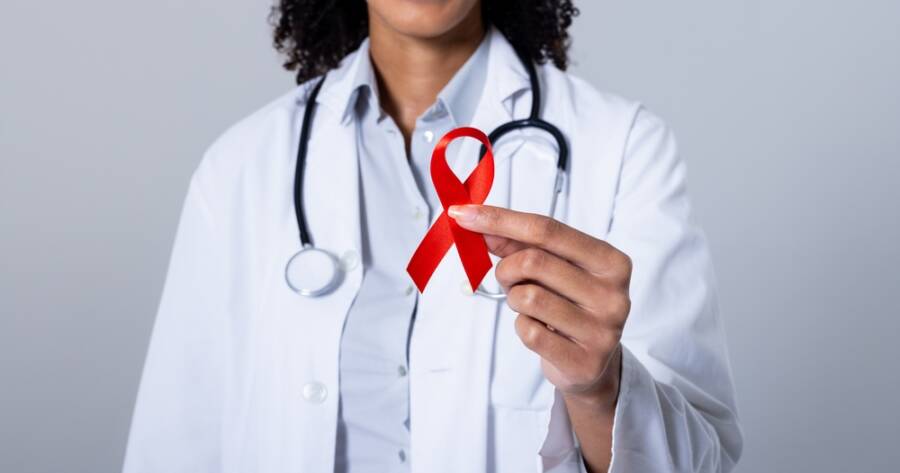Early detection of HIV can make a significant difference in managing the virus. Recognizing subtle symptoms like persistent fatigue, fever, or swollen lymph nodes can lead to timely treatment. Don’t overlook these early signs of HIV —they could be vital for your health!
Signs and Symptoms
By familiarizing yourself with the early symptoms, you can take action sooner and potentially prevent the virus from progressing. Some common early signs of HIV include: 1
- Flu-like symptoms such as fever, fatigue, and body aches
- Swollen lymph nodes
- Sore throat
- Rash
- Headache
- Nausea and vomiting
- Muscle and joint pain
If you experience any of these symptoms and suspect you may have been exposed to HIV, it is important to get tested as soon as possible. Early diagnosis can lead to better outcomes and improved quality of life.
Early Detection Matters
Early detection of HIV infection is of paramount importance in ensuring effective management and improving health outcomes for individuals. Timely diagnosis enables prompt initiation of antiretroviral therapy (ART), which can significantly suppress the virus, prevent the development of complications, and improve overall quality of life.
The benefits of early detection extend beyond the individual. It contributes to reducing the risk of HIV transmission to others, as individuals who are aware of their status can take necessary precautions to prevent infecting their partners. Moreover, early detection facilitates contact tracing, allowing health authorities to identify and test individuals who may have been exposed to the virus, thereby curbing further transmission.
Despite the advancements in HIV testing and awareness campaigns, there are still barriers to early detection. Stigma associated with HIV, limited access to healthcare services, and lack of knowledge about the importance of testing contribute to delayed diagnosis. Overcoming these barriers requires concerted efforts from healthcare providers, policymakers, and society as a whole to promote regular testing, especially for individuals at higher risk of infection.
Effective HIV Management
Effective management of HIV involves a combination of strategies aimed at suppressing the virus, preventing opportunistic infections, and improving overall health and well-being. Antiretroviral therapy (ART) is the cornerstone of HIV management. ART involves a combination of medications that work by targeting different stages of the virus’s life cycle, preventing it from multiplying and spreading within the body. 2
Regular monitoring of viral load and CD4 counts is crucial in assessing the effectiveness of ART and guiding treatment decisions. Viral load tests measure the amount of HIV in the blood, while CD4 counts indicate the number of immune cells that are essential for fighting off infections. By tracking these markers, healthcare providers can adjust ART regimens as needed to ensure optimal viral suppression and immune system function.
Adherence to ART is paramount for successful HIV management. Skipping doses or interrupting treatment can lead to the development of drug resistance, making the virus more difficult to treat. Therefore, it is essential for individuals living with HIV to take their medications as prescribed, consistently and without fail.
Key to Successful Treatment
Successful treatment of HIV relies on several key factors that contribute to improved health outcomes and overall well-being. Firstly, early initiation of ART is crucial in preventing the progression of the disease and reducing the risk of complications. Starting treatment as soon as possible after diagnosis allows for more effective viral suppression and preservation of immune function.
Secondly, adherence to ART is non-negotiable for successful treatment. Taking medications as prescribed, consistently and without fail, is essential to maintain viral suppression and prevent drug resistance. This requires a strong commitment from individuals living with HIV, as well as support from healthcare providers and adherence counseling programs.
Finally, regular monitoring and follow-up care are crucial for assessing the effectiveness of treatment and managing any side effects. This involves regular visits to healthcare providers, adherence counseling, laboratory tests, and lifestyle modifications to promote overall health and well-being.
Learn More About HIV
To delve deeper into the topic of HIV and its management, numerous credible resources are available. Reputable health organizations, medical journals, and government agencies provide comprehensive information on HIV testing, treatment options, prevention strategies, and support services. By actively seeking knowledge and staying informed, individuals can take control of their health and well-being, and effectively manage their HIV infection.




